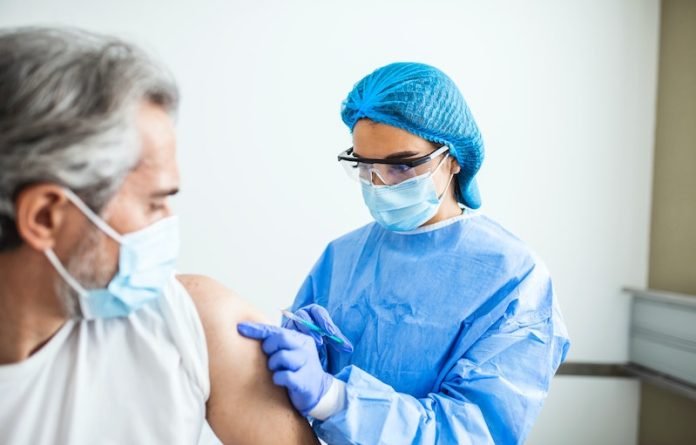
In a study from British Columbia Centre for Disease Control, scientists found the risk of heart inflammation is two- to threefold higher after a second dose of the Moderna Spikevax COVID-19 vaccine when compared to the Pfizer BioNTech COVID-19 vaccine.
However, overall cases of heart inflammation with either vaccine are very rare.
The team found males younger than 40 years old who received the Moderna vaccine were shown to have the highest rates of myocarditis, which may have implications for choosing specific vaccines for certain populations.
Two mRNA COVID-19 vaccines have been approved for use: Pfizer BioNTech (BNT162b2) and Moderna Spikevax (mRNA-1273).
As of March 20, 2022, more than 52 million doses of Pfizer and 22 million doses of Moderna have been administered in Canada, where this study was conducted.
Clinical trials have found that vaccines are safe and monitoring of vaccinated people has shown side effects are mild and go away on their own.
However, some rare but serious side effects have been observed after both vaccines, mainly myocarditis (inflammation of the heart).
In the study, the team sought to compare the risk of myocarditis, pericarditis and myopericarditis between the Pfizer and Moderna COVID-19 vaccines.
People in the study were 18 years old or older and had received two primary doses of either Pfizer or Moderna vaccine in British Columbia, Canada, with the second dose between Jan. 1, 2021 and Sept. 9, 2021.
In all, more than 2.2 million second Pfizer doses and more than 870,000 Moderna doses were given. Within 21 days of the second dose, there was a total of 52 myocarditis cases (21 Pfizer and 31 Moderna) and 41 pericarditis cases (21 Pfizer and 20 Moderna).
Researchers also looked at rates per million doses and the rate was 35.6 cases per million for Moderna and 12.6 per million for Pfizer—an almost threefold increase after Moderna shots vs. Pfizer.
Comparatively, rates of myocarditis in the general population in 2018 were 2.01 per million in people under age 40 and 2.2 per million in people over age 40.
Rates of myocarditis and pericarditis were higher with the Moderna vaccine in both males and females between ages 18 and 39, with the highest per million rates in males ages 18-29 after the second dose of Moderna.
According to the team, the findings support recommending certain populations receive certain vaccines to maximize benefits and minimize adverse events.
Researchers suggest that the study is reassuring for vaccine safety since it provides further data that myocarditis is a very rare adverse event after both vaccines, and it is an important step toward a personalized approach to administering COVID-19 vaccines.
If you care about COVID, please read studies about new cause of inflammatory cytokine storm in COVID-19, and new antiviral drug may block COVID-19 transmission.
For more information about heart health, please see recent studies about how espresso coffee affects your cholesterol level, and results showing Vitamin C linked to lower risk of heart failure.
The study was conducted by Naveed Janjua et al and published in the Journal of the American College of Cardiology.
Copyright © 2022 Knowridge Science Report. All rights reserved.



